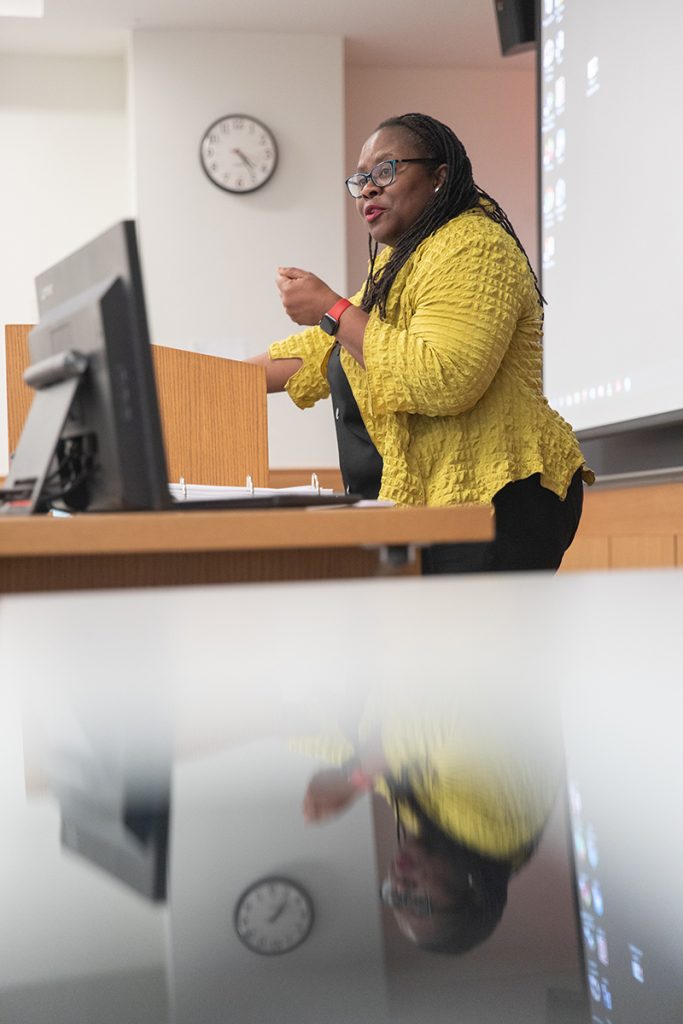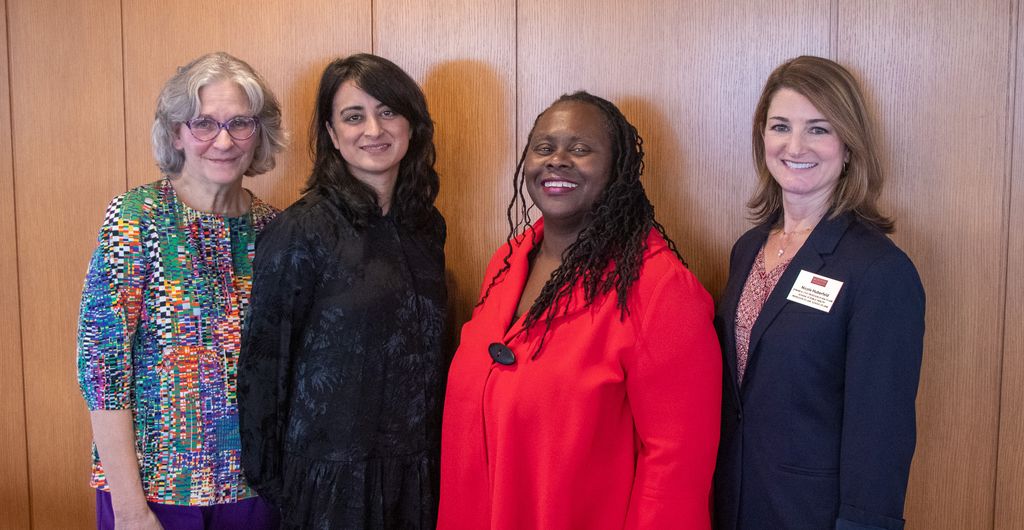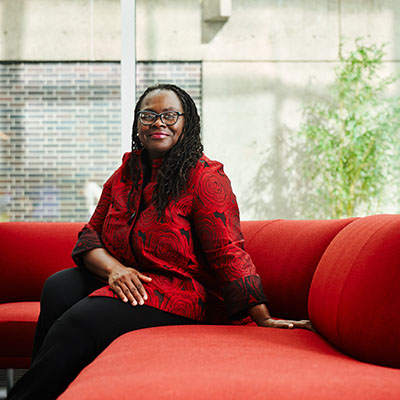After Roe, After Dobbs
Dean Onwuachi-Willig reflects on the future of the impacts of the landmark US Supreme Court rulings.

Photo by Conor Doherty
After Roe, After Dobbs
On the impacts of the landmark US Supreme Court rulings.
Being able to control reproductive choices—having the ability to decide if and when to give birth and become a parent—is central to determining how one may build a life and future. For some, having control over their reproductive capacities could mean the difference between completing or not completing their education, taking advantage of a particular job opportunity or having to decline it, or moving or not moving to a different location. These decisions shape our economy and our society.
In the 50 years since the Supreme Court issued its ruling in Roe, an entire generation of women and people with reproductive capacities grew up with a stronger sense of their own agency and control over their own bodies. The court’s June 2022 decision in Dobbs v. Jackson Women’s Health Organization worked to change that dynamic, practically overnight.
Within 100 days of Dobbs, dozens of clinics closed in states that had passed abortion trigger laws, leaving women and others with reproductive capacities without easily available access to healthcare that allows them to control their reproductive choices. Those constraints have had immediate implications for healthcare and budgets in other states because people have had to cross state lines to access the healthcare they desire and need.
As we work back toward national protections for reproductive rights, we have an opportunity to create stronger narratives and stronger protections. The fight will be decades long, working state by state. Still, such mobilization is necessary.
Many providers in states with new abortion restrictions have no idea how these laws will be enforced, so they are changing practices that were once routine to avoid the threat of legal charges. I have read story after story after story about patients experiencing ectopic pregnancies, incomplete miscarriages, and other obstetrical conditions, only to be turned away by doctors who fear being charged with facilitating an abortion. These patients face prolonged pain and suffering, and, in the worst cases, the miscarrying person could die from an infection or hemorrhaging.
All of these impacts are worse for immigrant women and women of color, who are significantly more likely to die during childbirth, regardless of education or income. Black women, for example, are five times more likely to die from pregnancy-related heart failure and blood-pressure disorders than white women. Acute or chronic health conditions that can result in complications with pregnancy are among the top factors that lead people to seek abortion care. Less access to reproductive healthcare will undoubtedly result in more deaths of Black women.
The uncertainty of this moment calls for reflection, conversation, and action, and scholars at BU Law intend to be part of this new phase in the movement for reproductive rights. “After Roe and Dobbs: Seeking Reproductive Justice in the Next Fifty Years,” a symposium organized last January by Professors Aziza Ahmed, Nicole Huberfeld, and Linda McClain, drew scholars from across the country to explore the legacy of the landmark rulings and the future of reproductive justice in the United States.

From left to right: Professor Linda McClain, Professor Aziza Ahmed, Dean Angela Onwuachi-Willig, and Professor Nicole Huberfeld.
As my friend and colleague Kim Mutcherson, reproductive justice scholar and dean of Rutgers Law School, has said, narratives matter. The protections provided by Roe were dismantled piece by piece, narrative by narrative. As Dean Mutcherson has warned, Roe was far from perfect. It focused too much on doctors and not enough on women. It arguably should have been rooted in sex equality as opposed to privacy, and it failed to address equal access to abortion care. Events like the one held in January can dispel some of the misconceptions we hold about what Roe did and did not accomplish and help us plan for a post-Dobbs future.
As we work back toward national protections for reproductive rights, we have an opportunity to create stronger narratives and stronger protections. The fight will be decades long, working state by state. Still, such mobilization is necessary.
A new generation of lawyers who are equipped to advocate for reproductive rights at the federal, state, and local levels will be critical to this work. That is why BU Law is launching a new program in reproductive justice in fall 2023. Led by three faculty who have deep expertise in this field and have developed a strong partnership with the School of Public Health, students will learn to be practitioners and leaders on one of the most pressing issues of our time.
Boston is well known as a city of medical and scientific innovation, and BU Law has always been at the forefront of legal education. Our graduates have made lasting impacts on society, and it is critical that we provide our students with the foundation that allows them to remain at the forefront. Perhaps, in another 50 years, we can tell a different story—one about hope and resilience and the power of a movement to build even stronger protections than we had after Roe.

FEATURED IN
